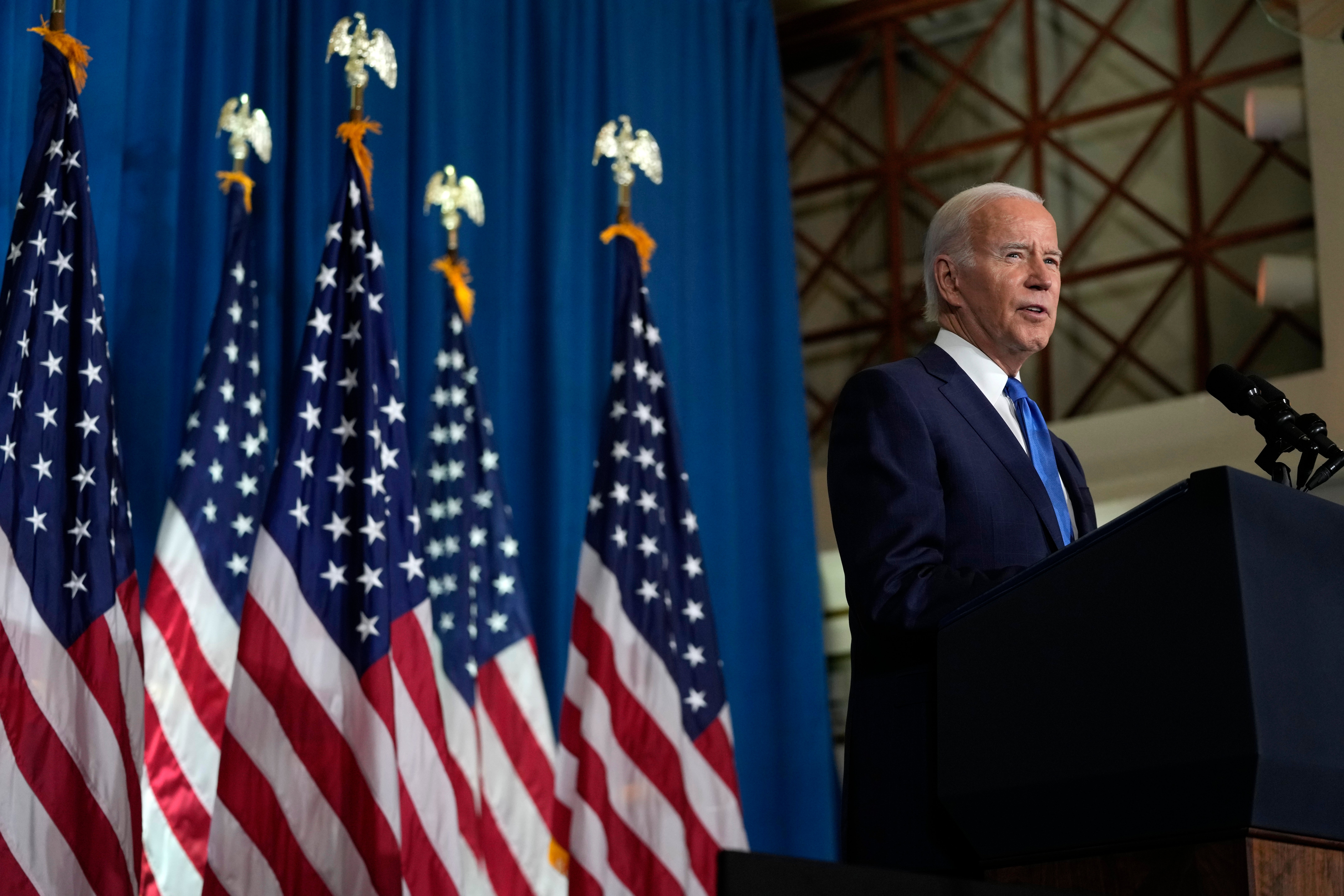Republicans have convinced voters inflation is Biden’s fault — even though they have no plan to solve it
Polls show that the GOP has successfully managed to make inflation a deciding issue, without having a clear policy for combating it. What this implies about the future is scary


Your support helps us to tell the story
From reproductive rights to climate change to Big Tech, The Independent is on the ground when the story is developing. Whether it's investigating the financials of Elon Musk's pro-Trump PAC or producing our latest documentary, 'The A Word', which shines a light on the American women fighting for reproductive rights, we know how important it is to parse out the facts from the messaging.
At such a critical moment in US history, we need reporters on the ground. Your donation allows us to keep sending journalists to speak to both sides of the story.
The Independent is trusted by Americans across the entire political spectrum. And unlike many other quality news outlets, we choose not to lock Americans out of our reporting and analysis with paywalls. We believe quality journalism should be available to everyone, paid for by those who can afford it.
Your support makes all the difference.In their efforts to take control of the House and the Senate from the Democrats in the midterms, Republicans are hoping that the electorate will punish President Joe Biden and his party for historically high inflation.
There really is no broader economic message beyond inflation. The US economy added 263,000 jobs in September and the unemployment rate dropped to a historically low 3.5%. Wednesday’s national employment report from ADP pegged US job gains in October at 239,000. According to the Atlanta Fed, wages were up 6.3% in September. While that’s down from 6.7% in August, it’s still higher than any point the past four decades.
But inflation is surpassing the increase in wages. The US Consumer Price Index in September rose to a seasonally adjusted 0.4%, down from a high of 1.3% in June. The unadjusted inflation for the 12 months ending in September was 8.2%. That’s higher than at any point since 1981. The fact that inflation is concentrated on energy prices and foods is serving as a reminder to voters every time they fuel their cars or shop for groceries.
The Republicans are blaming inflation on Biden and his economic policies — and, according to polls, so are the majority of voters. Democrats have not been able to effectively counter that inflation is a global problem, with the US rise actually lower than in the European Union and the UK. As a result, the polls in the week before the elections have swung decidedly in the GOP’s favor.
According to FiveThirtyEight, the odds of the Democrats retaining control of the Senate is 47%, down from 71% in June. The Senate is currently tied 50/50 but in Democratic control, with Vice President Kamala Harris providing the tie-breaking vote. On Friday, Decision Desk HQ for the first time made the Republican Party the favorites to seize control of the chamber (with a 50.4% chance).
On the House side, Republicans have been the favorites to make up the current five-seat deficit the entire year. But those odds and the expected margin have increased of late, with FiveThirtyEight giving the GOP an average 0.8-point lead on the generic congressional. After dropping as low as 68% in September, the GOP odds of controlling the House are 85%, according to FiveThirtyEight. That’s the highest it’s been since Roe v. Wade was overturned.
Republicans have managed to make inflation a deciding issue — without having a clear policy for combating it.
They have vowed to make the Trump tax cuts permanent to combat a recession. But data from September shows the US economy actually growing at an annualized rate of 2.6%. Promoting growth is in conflict with the Federal Reserve’s policy of combating inflation by raising interest rates to decrease spending. The GOP has also threatened to not lift the borrowing cap – but that’s to pay bills already incurred and has nothing to do with future spending. GOP Leader Kevin McCarthy, assumed to be Speaker of the House should the GOP win control, refused not to rule out demanding reduced entitlement spending on Social Security and Medicare in return for allowing the US to meet its debt obligations.
Whether any of this would impact inflation has drawn skepticism even from conservative economists. “It is unlikely that any of the policies proposed by Republicans would meaningfully reduce inflation in 2023, when rapidly rising prices will still be a major problem for the economy and for consumers,” Michael R. Strain, an economist at the conservative American Enterprise Institute, told the New York Times.
Yet the polls say that Americans not only believe inflation is a problem that an election can solve but that the GOP is the party to solve it. Reuters/Ipsos survey data from October gives Republicans the edge on dealing with the inflation 42-to-31. An October Data for Progress poll paints an even more grim picture for Democrats, as inflation is by far the number one issue (45% of voters say so.)
As a result, the Cook Political Report currently forecasts a 20-seat Republican gain in the House, more than enough to seize control of the chamber. On the Senate side, Cook forecasts a 50/50 Senate but has three seats currently controlled by Democrats as toss-ups (Arizona, Georgia and Nevada) versus just two for the GOP (Pennsylvania and Wisconsin).
“The Democrats can absolutely make the point that Republicans haven’t offered a better solution. But this isn’t a presidential election, it’s a midterm election,” Cook editor-in-chief Amy Walter told reporters on Thursday. “There is not a choice between picking the leader of the party, the leader of the free world. This is about sending a message to the party that’s in charge.
“And in that sense, Democrats have a very hard challenge in front of them. They can’t say that … the economy is in a good place. They can say technically it is getting better in some ways. But you can’t convince people about how they are feeling.”
Michael Salfino is an analytics writer for FiveThirtyEight, The Athletic and previously for The Wall Street Journal. He also wrote about polling and demographic trends relating to the 2020 US presidential election for The Independent
Join our commenting forum
Join thought-provoking conversations, follow other Independent readers and see their replies
Comments